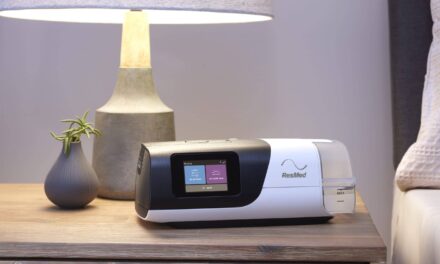Sleep apnea patients who have been adherent with their Philips positive airway pressure devices prior to the Philips CPAP recall in June 2021 have been harboring concerns that use of the devices with the potentially disintegrating polyester-based polyurethane foam could have raised their lifetime risk of cancer. But two new studies–one conducted in France and the other in Canada–provide some reassurance that cancer risk was not increased from use of Philips devices over the 7+-year periods studied.
The study “Cancer risk in adherent users of polyurethane foam-containing CPAP devices for sleep apnoea,” based in France, studied 4,447 patients, 1,648 of whom had been treated with Philips Respironics devices and 2,799 with non-Philips devices (these were mostly ResMed users). Using Philips Respironics versus non-Philips devices was not associated with all-cancer incidence. On multivariate analysis, only age and the Epworth Sleepiness Score were associated with all-cancer incidence. When the analysis was restricted to incident lung cancer (n=52), the investigators also found no association with the use of Philips Respironics devices (HR 0.68, 95% CI 0.36–1.29).
The study, “An association between positive airway pressure device manufacturer and incident cancer? A secondary data analysis,” based in Canada, linked 6,903 clinically diagnosed obstructive sleep apnea patients with the provincial cancer registry to identify all new cancer diagnoses over a median of 7.5 years of follow-up. No statistically significant difference in overall cancer risk was found between users of Philips Respironics PAP devices and users of other brand’s CPAPs.
Philips provides its own summaries of these two studies in a clinical information update published today.
To date, 3 million replacement devices and repair kits for recalled devices have been produced. Philips Respironics aims to further increase capacity and complete around 90% of the production and shipments to customers in 2022.
Following the Food and Drug Administration’s inspection of certain Philips Respironics’ facilities in the US in 2021 and the subsequent inspectional observations, the US Department of Justice, acting on behalf of the FDA, recently began discussions with Philips regarding the terms of a proposed consent decree to resolve the identified issues.






It would be nice to know who requested and paid for these two studies.